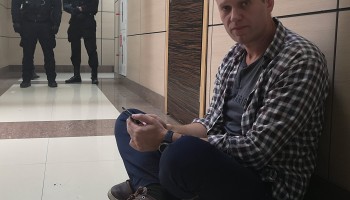The bill bans the transfer of statements retrieved from the registry to third parties, meaning that it effectively acts as a ban on their publication.
The consequences of sharing the information would come with fines ranging from approximately US$800 to $6000, with the possibility of suspensions from work for businessmen and legal entities.
The EGRN records information regarding ownership rights of land plots and buildings in Russia, and has often been used by journalists and anti-corruption activists to keep tabs on the assets of the country’s oligarchs and wealthy elites.
For individuals and officials willing to risk the fines of publicly sharing information from the land registry, the Economy Ministry also proposed an increased price of more than $16,000 for obtaining statements.
“This bill strictly regulates the rights of those who possess information to use it freely and distribute it as they wish,” Ilya Shumanov, deputy director of Transparency International Russia, told the local paper Vedomosti.
This is not the first time that the Russian government has tried to clamp down on access to information from the land registry.
According to Radio Free Europe, in 2015 legislation was proposed that would anonymize the personal information of real-estate owners, though it ultimately failed. In 2017 the Russian parliament passed legislation that limited the publication of details regarding state officials and their families to only instances in which their explicit permission was granted.
Preventing access to land registry information could protect Russia’s elites from citizens’ anger. Revelations about the assets of the wealthy have been the cause of widespread protests in the past.
When a 2017 video emerged revealing that Prime Minister Dmitry Medvedev had a network of secret assets that he allegedly obtained through bribes, large public protests ensued, OCCRP reported at the time.
The bill will be debated in parliament following a period of public appraisal, according to Radio Free Europe.






